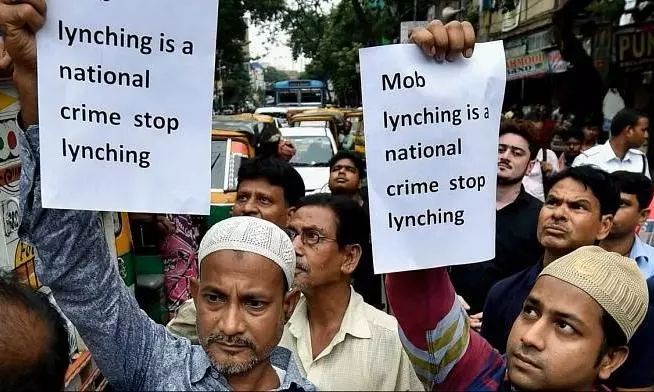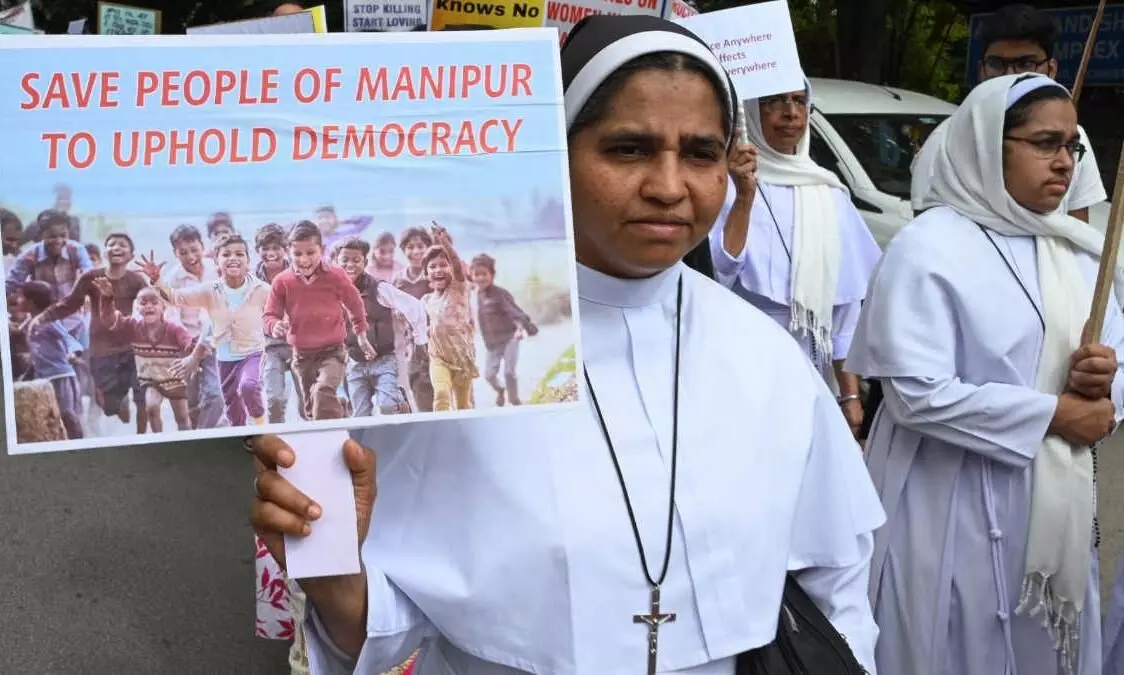
No lynching, no attack on minorities in India: Little-known minority group rejects US report
text_fieldsThe Indian Minorities Foundation (IMF), a lesser-known group, condemned the United States Commission on International Religious Freedom (USCIRF) in response to its reports of persecution and discrimination against minorities in India under the pro-Hindu government. This includes incidents under newly enacted anti-conversion laws in several BJP-governed states allegedly targeting minorities.
According to its website, IMF “is conceptualized to amplify the voice of minority communities in the country by bringing together like-minded people and organizations for advocacy, networking, engagement, endorsing and creating equal opportunities, and to build a more equitable and inclusive society, where minorities are empowered to thrive and progress.”
However, so far, no report of actions taken by the IMF to foster communal harmony, advocacy for equal opportunities for minorities, or any role in building an inclusive society has been reported about the outfit. Nor has it voiced opposition to the mob lynching of members of the Muslim community and Dalits over alleged cow slaughter and cow transporting, the Manipur riot where Christian community members and their churches were targeted, and the systematic marginalisation of minority communities.
Though there is no specific proof linking the IMF with the BJP, photos on the website show BJP leaders, including Prime Minister Narendra Modi and Uttar Pradesh Chief Minister Yogi Adityanath, with leaders of minority communities. Notably, the leaders of the Muslim community depicted are not from mainstream Muslim organizations or any political parties.
As for the allegation raised about mistreatment of minorities, it is not the first time the USCIRF highlighted the persecution and discrimination of minority communities in India.
In a statement released on Thursday, the IMF alleged that the USCIRF, in trying to categorize India alongside authoritarian regimes such as Afghanistan, Cuba, North Korea, Russia, and China, disregards and overlooks the country's democratic structure, robust civil society, and rich pluralistic heritage.
“In December, the United Christian Forum (UCF) reported 731 attacks on Christians in the year, compared with 599 such incidents in 2022. The UCF data by state showed the most incidents in Uttar Pradesh (301) and Chhattisgarh (152),” says the 2023 report.
The report further highlighted the arrest of minority community members under laws banning forced religious conversions.
“Christians and Muslims were arrested under laws banning forced religious conversions, which religious groups said in some cases were used to harass and imprison members of religious minority groups on false and fabricated charges or for lawful religious practices. In some cases, Christian groups said local police aided mobs that disrupted worship services over accusations of conversion activities or stood by while mobs attacked Christians and then arrested the victims on conversion charges,” says the report.
Responding to these allegations, the IMF challenged the USCIRF's methodology and accused it of relying on biased sources and misinterpreting India's federalism. The IMF argued that state-level laws, such as those related to anti-conversion measures, are within the constitutional framework of Indian federalism and do not warrant comparison to authoritarian practices.
Moreover, the IMF condemned what it termed as "foreign interference" in India's internal affairs, particularly regarding regulations on foreign funding to NGOs under the FCRA (Foreign Contribution Regulation Act). The IMF criticized the USCIRF for allegedly supporting foreign-funded activism in India and misrepresenting isolated incidents as systemic religious persecution.
The USCIRF's report also drew controversy for its comments on the revocation of Article 370 in Jammu and Kashmir. The IMF defended the Indian government's decision, arguing that it was aimed at integrating the region more closely with India and ensuring equal rights for all residents. The move, upheld by India's Supreme Court, has been portrayed by the IMF as a step towards economic development and territorial integrity.
In addition to challenging the USCIRF's findings, the IMF accused the commission of exacerbating ethnic tensions in Manipur by mislabeling communities and stoking communal divides. The USCIRF's characterization of Meitis as Hindus and Kukis as Christians in its report was sharply criticized by the IMF as irresponsible and divisive.
The IMF's statement concluded with a rebuke of what it described as "selective outrage" and "double standards" in international assessments of India's religious freedom record. It called for a more nuanced understanding of India's diverse religious landscape and cautioned against external judgments that it believes undermine India's sovereignty and unity.

























